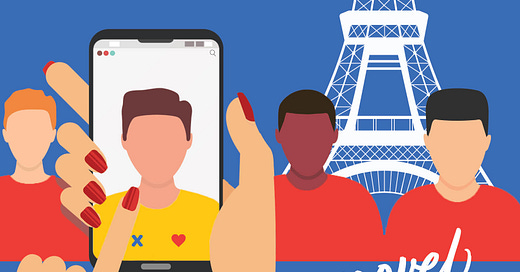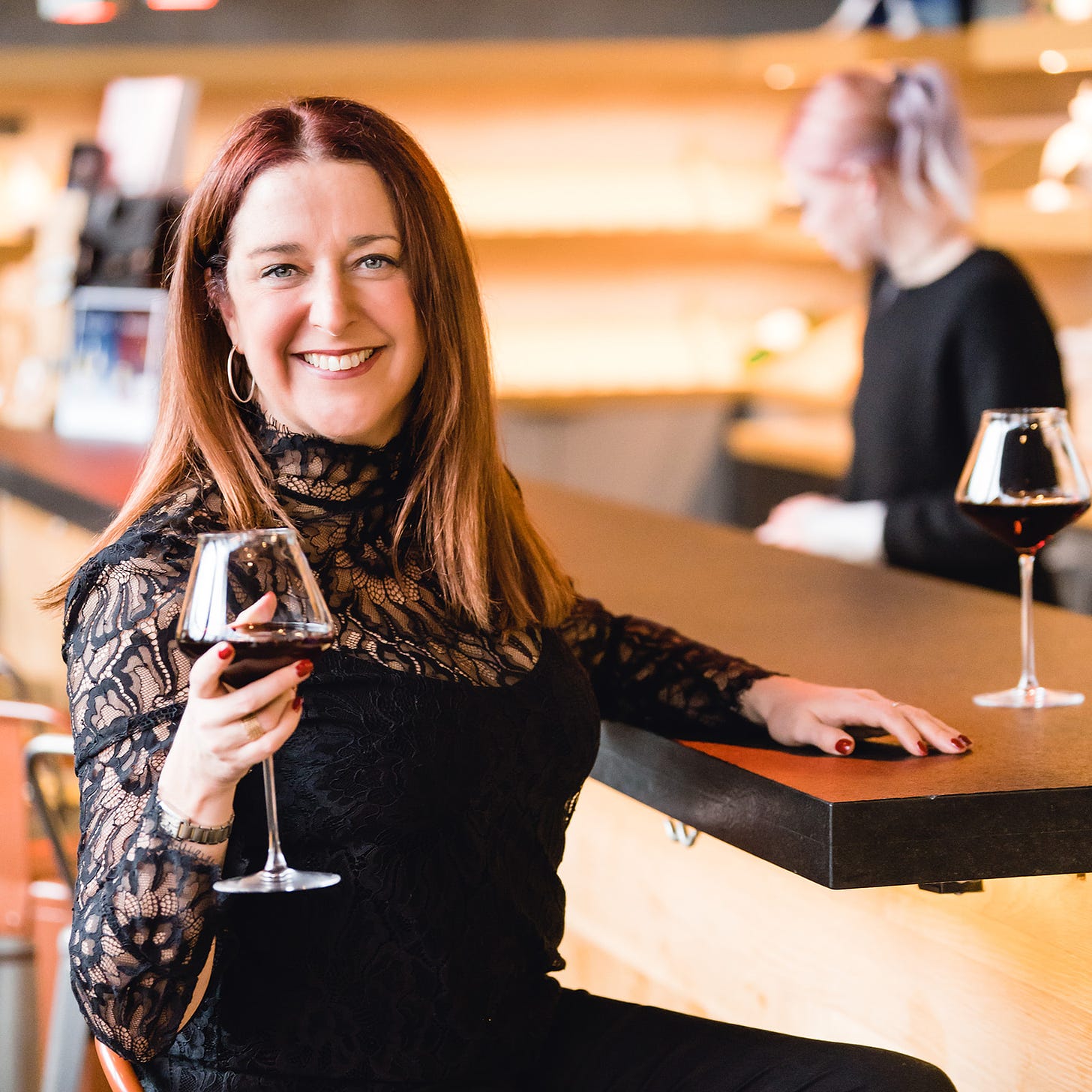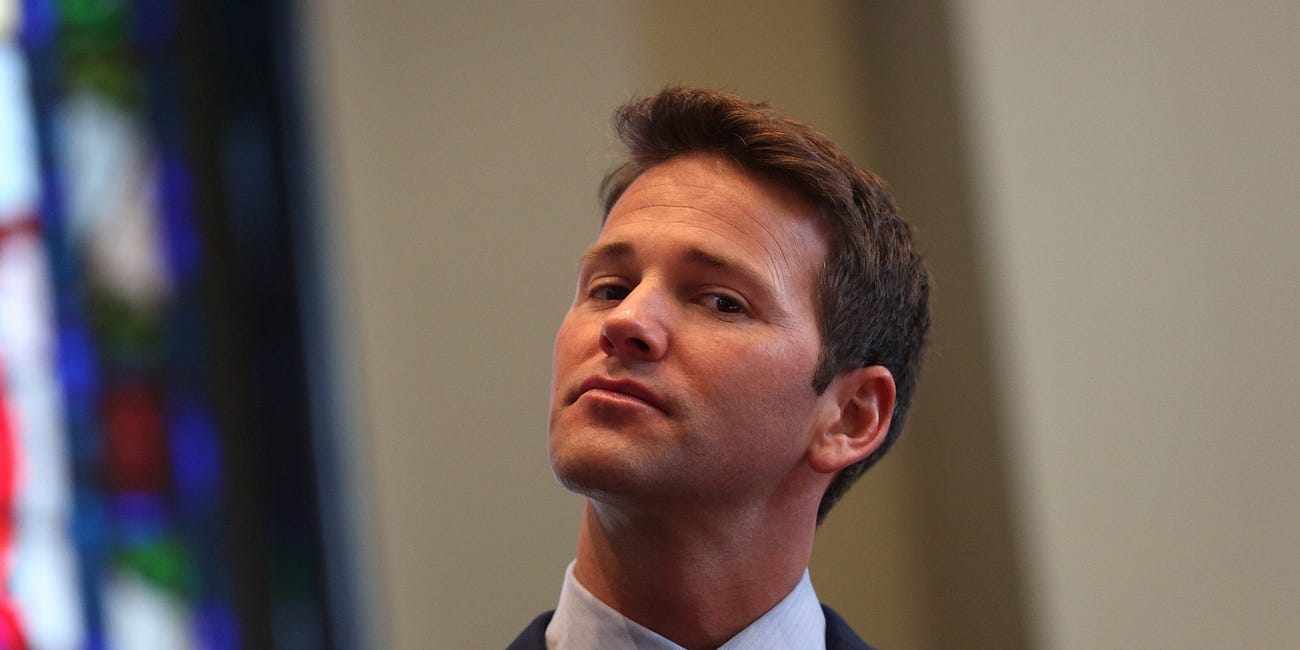No good story starts with a glass of water
An interview with 'Will There Be Wine?' author Whitney Cubbison
Published in January 2023, Will There Be Wine? is Whitney Cubbison’s debut novel. I tore through it on a cross-country flight, and couldn’t wait to catch up with Whitney and get the inside scoop on what it takes to takes to write a book and how much of this terrific rom-com is real. It’s the perfect summer read. Enjoy!
OK, who is Whitney and tell us about the book.
Hi there! I’m Whitney Cubbison, a dual American and French citizen living in Paris since 2009. I grew up in Houston, Texas so I like to joke that I’m the other Whitney Houston. 😊 I fled Texas in 1994 for California and graduated from UCLA in 1998 with a degree in French. Not knowing what to do with a French degree, I started my career working for PricewaterhouseCoopers as a junior developer, coding SAP apps. Perfectly logical, right?
Oddly, it was. I graduated during the tech boom, and everyone was desperate for programmers. PwC smartly knew that if I could learn one language, I could learn another, so they trained me to code. I did that for about 18 months and then decided that while I liked technology, I’d rather talk about it than make it work, so I transitioned into Communications. I worked for high-tech PR agencies in San Francisco for several years and eventually joined Microsoft in 2006 in Seattle. Three years later, I transferred to the Paris office where I stayed for the next 13 years. During that time, I held various international roles that spanned public relations, employee communications, executive speechwriting, and social media.
I earned my French citizenship in early 2022 and left Microsoft in the summer of that year to focus on completing my first novel, Will There Be Wine? It’s a rom-com about the dating misadventures of an American ex-pat divorcée in Paris and was published in January 2023. The main character is named Austen Keller, and it’s about her journey of self-discovery through a string of disastrous dates, relationships forged in a deep cultural divide, world travels, and wine. A lot of wine.
The story, while fiction, is deeply inspired by my own experiences, trying to navigate the cultural minefield of dating in a foreign country.
Have you always dreamed of being an author?
Honestly, no. I just had exceptionally bad luck dating in Paris over the course of many years, and every time I told another one of my insane stories to friends, they kept telling me I had to write a book. So, one day I decided to believe them and started writing.
What was your process? I’m guessing a big chunk of the book was written during COVID-19 and lockdowns?
The whole process took about five years from start to finish, and yes, I wrote a good chunk of it during Covid since there was nothing to do and nowhere to go!
I put the first words to paper years earlier on an airplane. I don’t remember where I was flying from or to, but for whatever reason, that’s where it all began. Because I was working 100 hours a week at Microsoft, I was very inconsistent with my writing. I’d not touch the book for months at a time and then pick up where I left off whenever I found the time and energy. A lot of it was written during vacations or on planes or trains. The first draft took around three years to complete.
Once I had it, I hired a freelance structural editor to give me feedback on how the book was built. At the time, it was basically one chapter per guy, and for the meatier stories, there was some flashback and/or flashforward within the chapter. Her main feedback was that I should break out those flashbacks or flashforwards and tell them as full stories, so when that particular guy returned, the reader would remember him and get excited that maybe now was the time things would work out between him and Austen. With the benefit of hindsight, that feedback is pretty obvious, but given that I didn’t know what I was doing, it provided some much-needed clarity on how to move ahead.
I ended up pulling those stories apart, adding about thirty thousand words, reworking the timelines, and putting it all back together again, which took me another year or so. Most of that work was in 2021 during the lockdown.
When the second draft was complete, I hired a copy editor for what I thought would be a final polish. Normally, a copy edit involves fixing grammar, punctuation, formatting, and inconsistencies. For example, she told me that if I said on page 9 that he took off his shirt and on page 12 that he rolled up his sleeves, she’d catch that. Since everything is written in pieces, that sort of inconsistency is inevitable somewhere in the book. But then, she missed the deadline for getting me back the book.
I emailed her to ask where it was, and she told me that she was going to need a few more days. She said she loved my story so much that she didn’t want to miss an opportunity to help make it great, so she’d started doing a partial line edit on the book. A line edit is literally line-by-line feedback on how it could be better. She line-edited about a third of my book, and it was in processing her feedback that I really understood what was needed to take the book from good to great. She was an absolute angel, without whom the book would not be what it is.
Some of her feedback was stuff like:
You can’t have more than 6 lines of dialogue in Word. People’s attention spans aren’t that long. Break this paragraph up by adding gestures, facial expressions, descriptions of the room, etc.
You can’t just say “She learned XYZ.” Write the conversation where she learns it, so the reader learns it with her and experiences the emotions at the same time.
Sometimes your narrator seems to know the future. Sometimes she doesn’t. Pick one.
Use contractions in dialogue. It’s more realistic to how real people speak.
Add inner monologue. What is she thinking at this moment?
Add details about this restaurant. What made it charming?
Armed with her input, I worked between 6 and 12 hours a day, 7 days a week, for two months (September and October 2022) and rewrote huge chunks of the book. I jumped out of bed every day so excited to keep going and just loved every second of it because I was watching the story roar to life on the page and become infinitely better, right before my eyes.
In November, I hired a proofreader to give it a final look, while I worked with a cover designer on the art and started to build out my marketing plan. And in January, I self-published on Amazon.
Was there anything that came out of left field and surprised you while writing?
After spending my entire career as a corporate communicator, I considered myself a pretty solid writer. What I hadn’t considered is that the skills one develops in tech comms – namely synthesizing the complex into something that anyone can understand in two minutes, two soundbites, or less – doesn’t serve you particularly well as a novelist. In tech comms, you’re most often writing for a transaction (a sale) whereas with a novel, you’re writing for a feeling (taking the reader on an emotional journey). I had to unlearn summarization and brevity and learn how to transport a reader into a given scene. It was a pretty steep learning curve, but I deeply enjoyed the process.
The other big learning I had was how to do book PR and promotion. My marketing plan has been heavily based on Instagram, which I was definitely not using as a comms platform in my Microsoft days talking about cloud computing! Turns out there’s a huge sub-community of Instagram called Bookstagram, and all these Bookstagrammers post about is books that they love. So, I had to figure out how to break into that crowd and build up a team of early reviewers to help me get the ball rolling. It’s been quite the adventure!
How much of you is in Austen? How did you balance the line between fiction and reality when incorporating your life into the story?
Austen is very much me, albeit better dressed. 😊 She wears lots of heels, which I never do. But in all seriousness, I didn’t try that hard to separate myself from the character. I added a few small details to bring certain personality traits to life. For example, I made her an Army brat who moved around a lot as a kid, to explain why she never felt she had deep roots anywhere. I wasn’t an Army brat myself, but those differences were pretty minor in the end.
As for the balance of fiction versus reality, not everything in the book happened in real life. The jellyfish episode, for example, was entirely fictional. There had to be a decent amount of fiction woven in to make it all stick together as a novel. Some of the supporting characters are based on real people. Some are entirely fictional, added to create some kind of narrative arc. Some are blends of multiple real people.
At my Houston book launch party, I got a really interesting question from someone who asked if the “real” guys I wrote about in the book would read it and recognize themselves. I spoke about the variability of memory -- how everyone’s memory of a situation will be a bit different, so between memories and what was truly fictional, some would recognize themselves more than others. Some would say “that’s not what happened” and they’d be entirely right because it’s a work of fiction in the end.
Was there a specific date or relationship that didn’t make it into the book?
Yes! My ex-husband and I had a dog, Pongo, who went to live with my parents in Texas after we split up. He and I agreed to meet at the veterinary clinic for Pongo’s last appointment there, to get his paperwork to fly back to the States. Pongo and I got to the clinic first, and the vet, who was very attractive, asked how long Pongo was going to be in the States. Indefinitely, I replied. The vet asked me why and I said that my parents had won custody of him in the divorce. He stopped dead in his tracks and said, “you’re divorced?” I nodded and right about then, the ex arrived.
We went about the business of getting Pongo sorted, and then as he walked us all out, he shook the ex’s hand cordially, then patted Pongo on the head. Then he reached for my hand, pulled me slightly toward him, looked deep into my eyes, and said, “get a cat.”
I walked out of there a bit flustered and later looked him up on Facebook and sent him a message saying “I’m pretty sure ‘get a cat’ meant you wanted to see me again…?” He replied and immediately asked me to dinner. We went out a few times, but it didn’t go anywhere in the end, but to this day, “get a cat” is still the best pick-up line I’ve ever heard. Meow.
How did you think about managing people’s reactions to them being in the story?
Well as Taylor Swift says, if you don’t want me to write about you, don’t be a jerk. 😊 Kidding. Sort of.
First of all, I changed all the names and distinguishing characteristics (like what the guys did for a living or hair color), to give everyone plausible deniability.
There were three guys who inspired characters who I gave the opportunity to read the book in advance because they weren’t jerks and I consider them to still be friends. I didn’t want them to feel blindsided. Interestingly, only one of them took me up on that offer, and he loved how his character came across. For the other two, one read it after it was published, and he was super gracious. The third one still hasn’t read the book, as far as I know, although he was fully supportive of me writing it. I think he preferred to not see himself reflected back through my interpretation, and fair enough.
There are quite a few others in there to whom I never said anything, mostly in the hopes they’d just never read it. 😊 For the truly egregious ones, if they ever do read it, I don’t think they’ll be racing to admit it was them who behaved so badly. Anyway, so far, no one has come to me after reading it and been mad, so here’s hoping that string continues!
How exactly do you find a book cover artist? And do you have any tips for other aspiring authors?
I found my cover designer and my editors on www.reedsy.com which is an awesome resource for anyone looking to work with real professionals in this space.
My best advice for aspiring authors is to just start writing and then keep writing. I wasn’t sure if my random anecdotes would ever become a novel when I first started putting them to paper. It was only when I was deep into the writing process that I was sure I had a book. But if you never start, you’ll never know! And then, once you think you’ve got the story down, hire professional editors to help make it the best it can be. You will always be too close to your own work to see how it can be improved.
So what’s next for Austen? Are we going to see a sequel? And what’s your next project?
The only thing I’ve decided for sure is that if I write a sequel to Will There Be Wine? it’ll be called We’re Going To Need Another Bottle. And since the first book runs the course of about four years, I think it would be an interesting challenge to write a sequel that takes place in one week or over the course of a weekend. I like the idea of doing something on a much more compressed storytelling timeline that’s very dialogue driven. But we’ll see! I haven’t started anything just yet. For now, I’m just having fun promoting this book as the perfect summer read.
More Bravely
Schocked
Today, we’re used to members of Congress spewing incendiary comments on cable television and Twitter, saying and doing ever more outrageous things to make the news cycle. For these folks, the performance is the point. But, not too long ago, the House of Representatives had an altogether different kind of star.
Jimmy Carter leaves a monumental legacy
I am back from taking a week off. This week, we’re taking a look at the extraordinary presidency of President Jimmy Carter. President Carter, 98, is in hospice care. If you’d like to leave a message of peace and comfort for the Carter family, you can do so here
The Bravely Playlist is a great addition to your day. Subscribe below on Spotify.
If you enjoy this newsletter, please subscribe and share.







